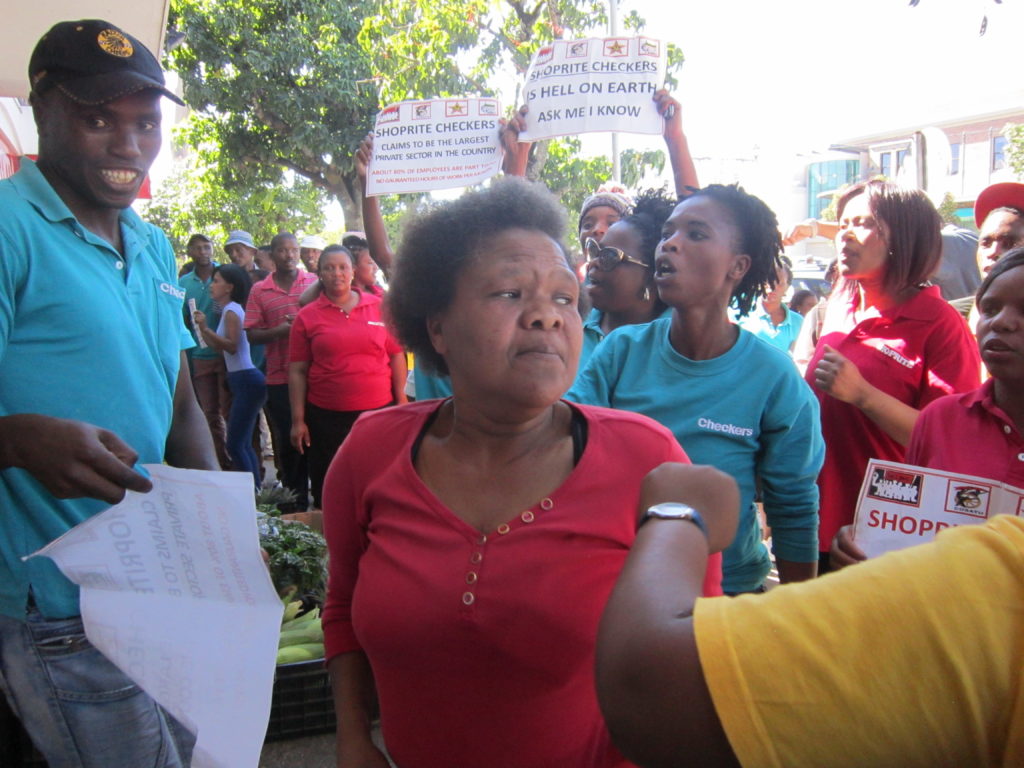
Shoprite and Checkers workers gathered yesterday in front of Checkers in High Street in a two-day wage and employment conditions protest.
Local organiser for the South Africa Commercial, Catering and Allied Workers Union (SACCAWU) ’Rocky’ Brian Kolweni said the Grahamstown action was part of a national strike and that one of their grievances was the temporary employment status of many of the employees.
“Where are the changes?” Kolweni asked. He said labour laws dicated that a person who works for a company for more than three months has the right to be permanently employed.
Other demands included safe transport for night-shift workers. “They become the victims of rape. The shop closes at 8 o’clock and they are still counting until past nine,” Kolweni said. “Some of them have to walk home and live as far as Extension 10. The company had made changes in working hours without consultating the workers, Kolweni said.
Cosatu Free State set out the strikers’ national demands as follows:
- The company should withdraw the unilateral change to the conditions of service which they have implemented
- The employer should provide safe and reliable transport for early morning shifts and late night shifts and the employer’s cost
- Reinstatement of dismissed workers in Sandton for standing their ground and fighting for their rights
- Conversion of all part-time workers with five years or more years of service to full-time permanent employment.
In Johannesburg, 23 employees were dismissed after protests there and the workers demanded that they be allowed to return to work. The limited strike was set to continue for two days and the union would then assess the situation, Kolweni said.
“The response from the company will determine the way forward,” said Kolweni.
Grocott’s Mail’s request for comment from the manager of Checkers in Grahamstown was referred to the company’s regional office in Port Elizabeth. No response had been received at the time of publishing.


